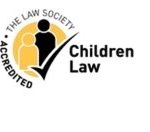Child Relocation After Divorce
Child Relocation Solicitors
If you are considering relocating with your child, it is important to understand the legal process and what permissions you may need from the court. We discuss whether permission is needed to relocate, if yes, who can apply for this, whether the child’s other parent can prevent the mov
“A family team that is able to offer the highest level of expertise across the family law spectrum from high-net-worth finances through to care proceedings and children matters.”
“I consider the firm to be very experienced in child care cases and to provide a very professional and high standard of work”
We discuss whether permission is needed to relocate, if yes, who can apply for this, whether the child’s other parent can prevent the move, and what factors the court will take into consideration when making a decision.
Can I move away with my child after separating from my ex?
There is a difference in law between relocating within the UK and internationally after divorce. If you are the primary carer of your child, you do not technically need permission to relocate, within the UK. With this in mind, practical considerations such as how you are going to be able to continue to facilitate contact between your child and the other parent need to be borne in mind. This is even more important when there is a Child Arrangements Order in force, given contact must continue to take place in accordance with the order.
If you are the parent who opposes an internal relocation, there are steps you can take. You should contact a solicitor as quickly as possible in these cases.
The issue of international relocation is different. If you are seeking to relocate with your child outside of England and Wales, you must obtain permission from any other person with parental responsibility for the child (in a lot of cases the child’s other parent) and or the Court. If the other parent is consenting to the move, it is good practice to consult a solicitor, who can ensure that this is properly recorded. If you do not obtain permission in accordance with the above, you could be abducting your child. This is a criminal offence.
What things do I have to consider if I wish to relocate with my child?
If you are thinking about relocating, it is a good idea to carefully consider what impact the relocation is likely to have on the relationship between your child and your ex-partner. Consider the following:
- How far away are you moving?
- Will the left-behind parent still be able to see the child? How easy will this be?
- Will it be expensive for the left-behind parent to visit the child, for example, will they need to purchase international flights?
- What else can you do to ensure the child maintains a meaningful relationship with the parent left behind? For example, what sort of indirect contact, such as video contact can take place?
- What are the new proposed living and educational arrangements for the child?
- If the children are old enough, what are their wishes?
- Will the child be able to see the left-behind parent during school holidays and are you willing to let them travel (or travel with them) to make this happen?
- What will be the financial impact for both parents?
Ideally, you will be able to agree on a workable arrangement with your ex that allows the relocation to go ahead while ensuring the left-behind parent can still have plenty of meaningful time with your child.
Find out more about our other children law services:
What is a child arrangement order?
Bridget Thompson is a public law specialist noted for her extensive children public law practice.
"David Leadercrammer is such an experienced wonderful lawyer who you would want on the other side of your case. He’s sensible, pragmatic and hugely experienced in money and children cases."
"Bridget Thompson combines her excellent legal knowledge with a clear, succinct and robust style of advice and advocacy. Her approach clearly inspires a high degree of client confidence in her"
"She is excellent. She's very reliable, talks about her cases passionately and is very committed to her clients."
"I consider the firm to be very experienced in child care cases and to provide a very professional and high standard of work"
Bridget Thompson is a public law specialist noted for her extensive practice in matters involving alternative families and adoption. An interviewee observes: "She's a fighter, she's clever, and she understands all aspects of a case."
"Well-regarded family practice assisting clients with substantial matrimonial disputes and sensitive children proceedings."
"Simone is absolutely on top of the game. She has great attention to detail, and has her clients' needs at heart."
"Bridget is client-focused, a pleasure to work with and incredibly supportive to her clients."
Bridget Thompson heads the family team, where client care is the top priority.
Simone McGrath is a highly knowledgeable practitioner with a focus on international child abduction matters. She has a large expertise in public and private law.
Simone McGrath handles international child abduction cases and challenging care proceedings relating to non-accidental injuries.
This team is perhaps best known for its children work, often involving complex international dynamics.
Naomi Angell leads the market in cross-border children law matters. Sources confirm that she is "at the cutting edge of changing law and policy" when it comes to international adoption
Do I have a say in where my child lives?
Your rights depend on whether you have parental responsibility for your child.
Mothers automatically have parental responsibility.
A father usually has parental responsibility if he’s either:
- married to the child’s mother
- listed on the birth certificate (after a certain date, depending on which part of the UK the child was born in)
If the parents of a child are married when the child is born, or if they’ve jointly adopted a child, both have parental responsibility.
The above is not an exhaustive list.
As someone with parental responsibility, you have a say in where your child lives.
How do I prevent my ex from moving with my child?
You should consult a family solicitor as your first step. Assuming you have parental responsibility, there are certain things you can do to try and prevent the relocation. For example, your solicitor could:
- Try to reach a pragmatic solution with your ex-partner outside the court arena
- Apply for a Prohibited Steps Order to stop the child moving away
- Apply for a Child Arrangements Order, or an order to amend an existing Child Arrangements Order, in respect of where the child will live.
Insights from our Family LawyersVIEW ALL
- 22.3.2023
Parental Responsibility
Understanding Parental Responsibility Parental responsibility is the legal term used to describe the duties and responsibilities that parents have for...
Read more - 18.1.2022
6 cases that shape a private children dispute
Family disputes involving children can be particularly emotive, which is why our expert children lawyers work tirelessly to understand how...
Read more - 13.8.2019
Child Arrangements at Christmas
The Christmas period can be a hectic and stressful time for all parents, but for separated parents, it can be...
Read more - 24.5.2019
Can I take the children abroad on holiday?
Can a mother take a child out of the country without the father’s permission? The answer to this question...
Read more - 4.4.2019
Do I need a parenting plan?
I am often asked by a divorcing client: Do I need an Order recording the arrangements for the children? My...
Read more - 2.1.2018
How To Tell Children About Divorce
How to tell kids about divorce The rise in divorce globally has turned the attention of academics and researchers towards...
Read more - 19.6.2012
Children disagreements during Easter holidays
The Easter holidays can be a flashpoint for disagreements. When couples separate, it can be very difficult to reach an...
Read more
How does the court decide about a child relocation?
Child relocation cases can be challenging as any decision will have a fundamental impact on the child’s life. The court would need to carefully consider the specific facts of the case and whether the proposed move is in the child’s best interests. Factors that the court will take into account include:
- The age and sex of the child
- The child’s emotional and educational needs
- The wishes of the child
- Whether the child is socially connected to their current area
- What effect the change will have on the child
- The reasons why the parent wishes to move
The courts will look to see if the relocating parent has a well-thought-out plan that considers all the child’s needs. They will also consider the left-behind parents’ objections and how any move will impact the child’s relationship with both parents.
Every family is different, and the courts will look at the individual circumstances of your case.
It is preferable to try and reach a sensible fair agreement out of court. This will not only save you in time and costs but can also mean you have more control over what additional monies are spent on. You may even agree to pay directly for some of your children’s activities and expenses such as private school fees. We can advise you on a realistic level of maintenance in light of your situation.
Can the court refuse permission for a relocation?
The court will make a decision in the best interests of the child. The Court has overall discretion and can grant and or refuse an application for permission to relocate.
How we can help in child relocations cases
When one parent wishes to relocate with the children and the other does not agree, there are only two options: the child can go or stay. This is a difficult situation for everyone and it’s easy to fall into a combative mindset where one parent ‘wins’ and the other ‘loses’. It is important to remember that following this, both parents need to continue to co-parent irrespective of the outcome.
At Osbornes, we help families break through this deadlock. Our experienced family law team will be able to guide you in terms of the appropriate strategy to adopt to achieve your goals.
















